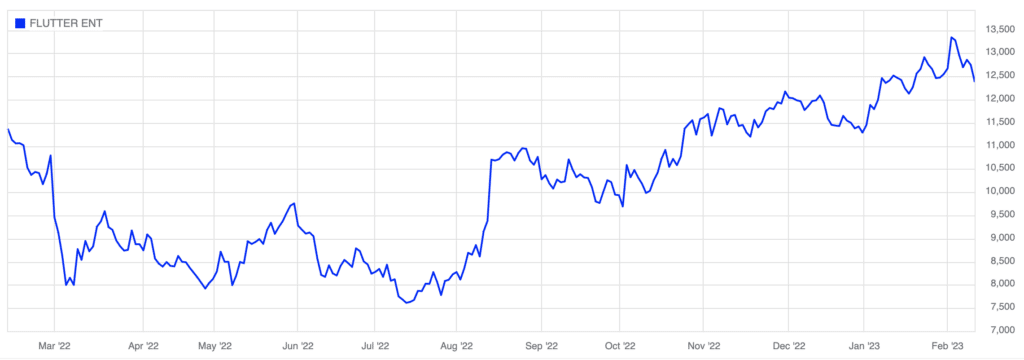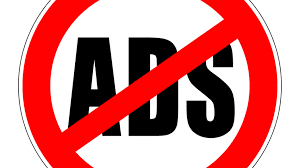Once again, we’ve a politician not quite understanding what he wants to regulate – in this case it’s US sports betting and the associated stocks. So, the likes of Flutter (LON: FLTR), DraftKings (NASDAQ: DKNG) and MGM Resorts (NYSE: MGM). All have substantial US sports betting businesses. All will benefit – yes, benefit – from an advertising ban on US sports betting.

This isn’t what Paul Tonko thinks he will achieve but it is what will happen:
The US gambling sector was in focus yesterday — when is it not? — as market watchers digested the news that New York congressman Paul Tonko had introduced a bill that would ban all online and electronic advertising of sports betting across TV, radio and the internet.
The Betting on our Future Act, modelled on the Federal Cigarette Labelling and Advertising Act, which banned tobacco advertising, reared its head just as the industry was gearing up for tomorrow’s Super Bowl, the biggest gambling event on the American calendar.
This isn’t how most of us think about it and it’s certainly not how congressmen do. But bans on advertising benefit large and established companies. Because they entirely shaft upstart and insurgent companies. Thus, the effect of an advertising ban is to boost the profits – and presumably the share prices – of the established companies. Like, for example, Flutter, DraftKings and MGM Resorts.
How Sports Betting Advertising Really Works
To grasp this, it’s necessary to understand how advertising works. Sure, when there’s a new thing then advertising is about shouting “Try me, Try this new thing”. How does anyone know they can do this new thing unless someone lets them know that they can? US sports betting was like that only a few years ago. The Supreme Court case that made it legal again was recent, and legalisation is still rolling out across the states. However, as soon as a marketplace gets established most to near all of the advertising is about getting someone to try “ME!”. It’s about converting a customer of another company to being one of your customers. Marlboro does not advertise to get people smoking but to switch those who smoke from Winston to Marlboro. This is why the varied smoking advertising bans have increased the profits of Phillip Morris and the other cigarette makers. They don’t have to pay the costs of the advertising.
Not because people have stopped smoking, but all the other companies have had to stop trying to steal the customers of the major producers.
Advertising Is a Cost After All
This is indeed how it works. Much of the advertising bill for Flutter is in trying to switch those who already sports bet away from DraftKings and MGM Resorts. Also, to stop Flutter customers from betting at DraftKings and MGM Resorts. The same is true of the ad budgets at DraftKings and MGM Resorts of course.
A ban on the advertising of sports betting alleviates that entire advertising bill. But it’ll drop sports betting activity by near nothing. Same income, lower costs, that’s good for profits.

The people who do get shafted are those trying to launch a new sports betting company. Because they’re prevented from trying to steal those extant customers through letting people know about their existence. Which is, again, great for the established companies because it means no one can come eat their lunch.
It’s Warren Buffett’s Moat
This is the creation of one of those moats around the profits that Warren Buffett so likes in a company. If no new company can advertise its way into the market, then the extant companies are protected. Margins can expand because no one can enter the market to compete them away.
The net result of this is a bit of a balance, something that is up to us each individually to think about. For, yes, the US sports betting market is still opening up state by state. So, an absence of advertising in those new markets could indeed limit growth of those big three. On the other hand, a ban on advertising also alleviates them of one of their major costs in extant markets – that advertising bill.
Advertising Bans Reduce Costs
The nett effect on share prices really depends upon who much of that new potential growth from the state market expansion is already built into current prices. If there’s a lot of hope there, then the ban might be overall negative. If current prices are, instead, largely built upon current cashflows and profits then a ban would be positive for stock prices.

As so often the effect of a change could go either way. But it is absolutely true that advertising bans are just great for established companies that dominate their markets. To the extent that sports betting companies already do this then they will benefit from an advertising ban.
It’s thus worth keeping an eye on this legislation or any other like it. It’s entirely possible that the market will see it as a negative so prices will slip if it looks like passing. That could well not be the correct reaction, creating a dip at which it would be profitable to buy in.
If you liked this report, check out our article for the Top Ten Valued Sports Teams in 2023.